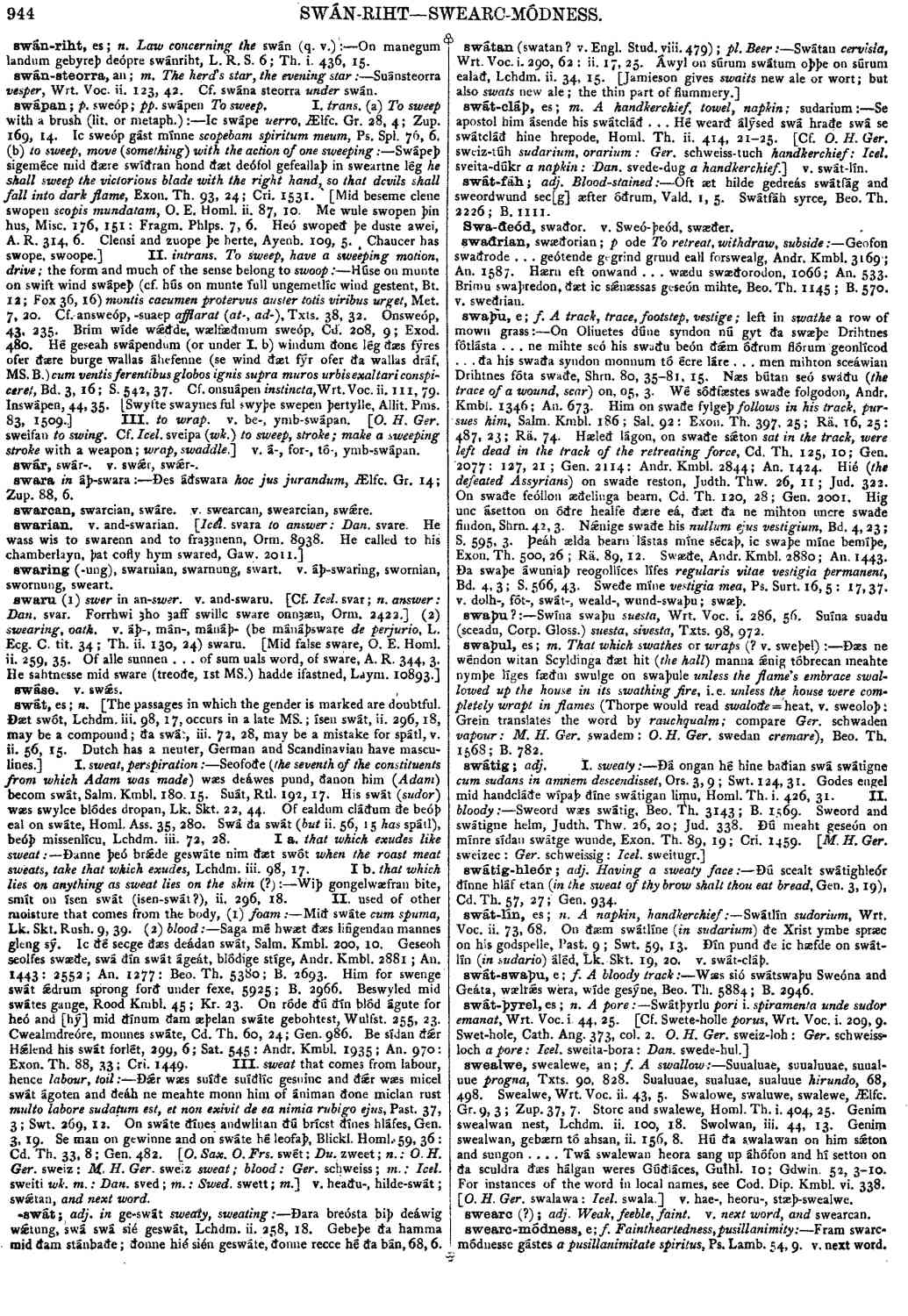swaþu
- noun [ feminine ]
-
On Oliuetes dúne syndon nú gyt ða swæþe Drihtnes fótlásta . . . ne mihte seó his swaðu beón ðǽm óðrum fiórum geonlícod . . . ða his swaða syndon monnum tó écre láre . . . men mihton sceáwian Drihtnes fóta swaðe. Shrn. 80,
- 35-81, 15.
-
Næs bútan seó swáðu
(the trace of a wound, scar)
on,- 05, 3.
-
Wé sóðfæstes swaðe folgodon,
- Andr. Kmbl. 1346; An. 673.
-
Him on swaðe fylgeþ
follows in his track, pursues him,
- Salm. Kmbl. 186; Sal. 92: Exon. Th. 397, 25; Rä. 16, 25: 487, 23; Rä. 74.
-
Hæleð lágon, on swaðe sǽton
sat in the track, were left dead in the track of the retreating force.
- Cd. Th. 125, 10; Gen. 2077: 127, 21; Gen. 2114: Andr. Kmbl. 2844; An. 1424.
-
Hié (
the defeated Assyrians
) on swaðe reston,- Judth. Thw. 26, 11; Jud. 322.
-
On swaðe feóllon æðelinga bearn. Cd. Th. 120,
- 28; Gen. 2001.
-
Hig unc ásetton on óðre healfe ðære eá, ðæt ða ne mihton uncre swaðe findon,
- Shrn. 42, 3.
-
Nǽnige swaðe his
nullum ejus vestigium,
- Bd. 4, 23; S. 595, 3.
-
Þeáh ælda bearn lástas míne sécaþ, ic swaþe míne bemíþe,
- Exon. Th. 500, 26; Rä. 89, 12.
-
Swæðe,
- Andr. Kmbl. 2880; An. 1443.
-
Ða swaþe áwuniaþ reogollíces lífes
regularis vitae vestigia permanent,
- Bd. 4, 3; S. 566, 43.
-
Sweðe míne
vestigia mea,
- Ps. Surt. 16, 5: 17, 37. v.
Bosworth, Joseph. “swaþu.” In An Anglo-Saxon Dictionary Online, edited by Thomas Northcote Toller, Christ Sean, and Ondřej Tichy. Prague: Faculty of Arts, Charles University, 2014. https://bosworthtoller.com/29570.
Checked: 0